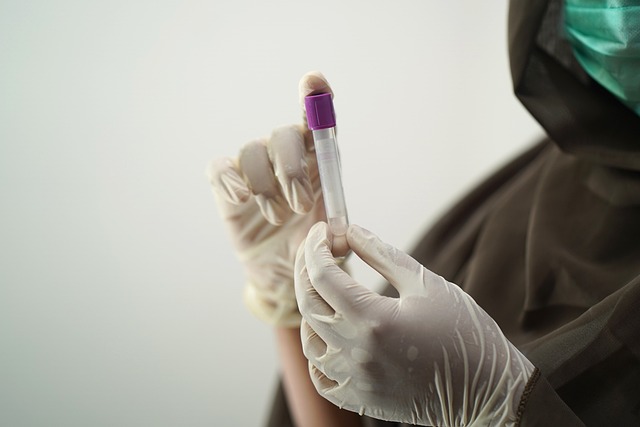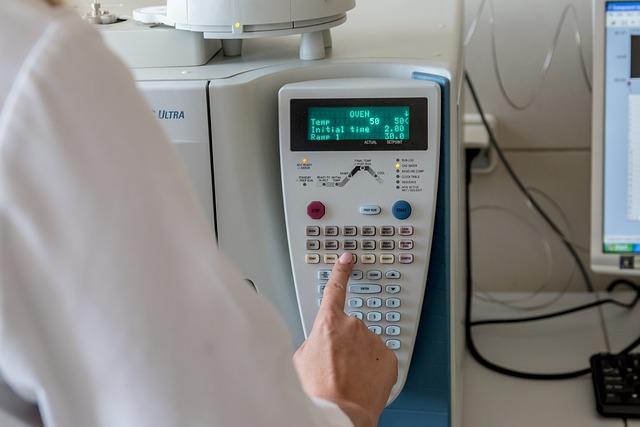The UK's National Health Service (NHS) utilizes Well Person Blood Tests (WPBT) as a proactive health monitoring tool. These tests provide comprehensive insights into individuals' health by assessing cholesterol levels, liver function, kidney function, and glucose indicators for diabetes. They are crucial for early detection of potential health issues, particularly for chronic conditions like diabetes, heart disease, and kidney ailments. WPBTs are accessible at local NHS clinics, community hospitals, and through at-home testing kits. These tests help establish baseline health measurements and monitor existing medical conditions, informing personalized healthcare recommendations and treatment plans. For UK residents considering a WPBT, it's important to prepare with necessary supplies like a lancet device, alcohol swabs, sterile gauze pads, a test kit, a timer, and a disposal container for sharps. The test involves cleaning a site on the fingertip or heel, using the lancet to obtain a blood sample, and applying it to the test kit according to the manufacturer's instructions. Results are typically available immediately. Individuals must consult with their healthcare provider to interpret the results and determine any necessary follow-up actions or medical evaluations. Regular home health checks using WPBT UK can facilitate early detection of health issues, support preventative healthcare, and empower individuals to maintain their health effectively within the NHS framework.
Identifying and addressing health concerns early on is pivotal in maintaining overall well-being. In the UK, well person blood tests have become an integral part of proactive health management. This article delves into the significance of these tests within the context of home health monitoring, offering insights through a comprehensive guide to self-administered checks and strategies to maximize their benefits for a thorough health assessment. Understanding the nuances of ‘Well Person Blood Test UK’ protocols empowers individuals to take charge of their health, ensuring timely interventions when needed.
- Understanding the Role of Well Person Blood Tests in UK Health Monitoring
- Step-by-Step Guide to Self-Administered Home Health Checks for Individuals
- Maximizing the Benefits of a 'Well Person Blood Test' for Comprehensive Health Assessment
Understanding the Role of Well Person Blood Tests in UK Health Monitoring

In the UK, well person blood tests play a pivotal role in proactive health monitoring, offering insights into an individual’s overall health status. These tests, which are part of the National Health Service (NHS) healthcare framework, provide a comprehensive assessment of one’s bodily functions by measuring various parameters within the blood. For instance, cholesterol levels, liver function, kidney function, and diabetes indicators like glucose can all be gauged through well person blood tests. By identifying potential health issues before symptoms arise, individuals can take preventative measures or seek early treatment, which is crucial for conditions such as diabetes, heart disease, and kidney problems. Regular monitoring of these markers enables early detection and management of risk factors, ultimately contributing to better health outcomes.
The process of undergoing a well person blood test in the UK is streamlined and accessible; individuals can often choose to have their tests performed at local NHS clinics or community hospitals, with some options available for at-home testing kits. These tests are not solely reserved for those without symptoms but are also beneficial for people seeking a baseline health measurement or those who wish to monitor ongoing medical conditions. The results from well person blood tests serve as a vital tool for healthcare professionals in providing personalised healthcare advice and treatment plans, ensuring that individuals receive the most appropriate care tailored to their health needs. With the integration of these tests within the UK’s healthcare system, citizens have access to a proactive approach to health management, which is both empowering and beneficial for long-term wellbeing.
Step-by-Step Guide to Self-Administered Home Health Checks for Individuals

Maintaining one’s health is a continuous process, and staying proactive with health checks at home can be incredibly beneficial. For individuals in the UK looking to conduct self-administered health checks, a Well Person Blood Test is an excellent starting point. This test can provide valuable insights into your overall health status by measuring various biomarkers such as cholesterol levels, blood sugar, kidney function, and thyroid hormones.
To begin with, gather all necessary materials beforehand: a lancet device, alcohol swabs, sterile gauze pads, a test kit, a timer, and a sharp-object disposal container. Ensure the test kit aligns with the type of blood sample required. Locate a spot on your fingertip or heel that’s not calloused or prone to bruising for the lancet device. Clean the selected area with an alcohol swab, then insert the lancet and gently squeeze the side until the blood droplet appears. Apply the blood onto the specified areas of the test kit according to the manufacturer’s instructions. If using a finger-prick device, place a drop of blood on the test strip, and the device will do the rest by displaying your results within minutes. For the Well Person Blood Test UK, specific values can help you understand if your health is within the normal range or if there are areas that require medical attention. After completing the test, carefully dispose of all sharp materials and any used materials, such as lancets and gauze, following local regulations for safe disposal. Record your results in a secure place, and consult with your healthcare provider to interpret them accurately and to discuss any health concerns or follow-up tests that may be necessary. Regular self-administered home health checks can empower individuals with knowledge about their health status, facilitating early detection of potential issues and informing lifestyle changes or medical interventions as needed.
Maximizing the Benefits of a 'Well Person Blood Test' for Comprehensive Health Assessment

Incorporating a ‘Well Person Blood Test’ into one’s healthcare regimen can offer profound insights into an individual’s health status, serving as a proactive measure for maintaining well-being. For those residing in the UK, accessing such tests is both convenient and essential for early disease detection and preventative care. These comprehensive assessments provide a detailed picture of an individual’s blood composition, allowing for the monitoring of key health indicators like cholesterol levels, blood sugar, kidney function, and liver health. By identifying potential health issues before symptoms manifest, individuals can take informed steps to address any abnormalities, thereby minimizing the risk of developing chronic conditions. The ‘Well Person Blood Test’ UK variants are specifically designed to align with the National Health Service (NHS) guidelines, ensuring that the results are actionable and relevant to one’s personal health profile. Regularly scheduling these tests as part of a routine health check can pave the way for tailored medical advice, enabling individuals to make lifestyle changes or adjust current treatments under professional guidance. This empowers patients to actively participate in their healthcare journey, fostering a partnership with healthcare providers that is both informed and collaborative.
In conclusion, incorporating regular well person blood tests as part of one’s healthcare routine in the UK offers a proactive approach to health monitoring. The comprehensive guide to self-administered home health checks provides individuals with valuable insights into their wellbeing, enabling early detection and management of potential health issues. By utilising the well person blood test UK services, people can gain an understanding of their current health status, which is crucial for maintaining long-term health and making informed decisions about their lifestyle and treatments. This accessible method of health assessment empowers individuals to take charge of their health in a convenient and cost-effective manner, ultimately contributing to a more health-conscious society.
